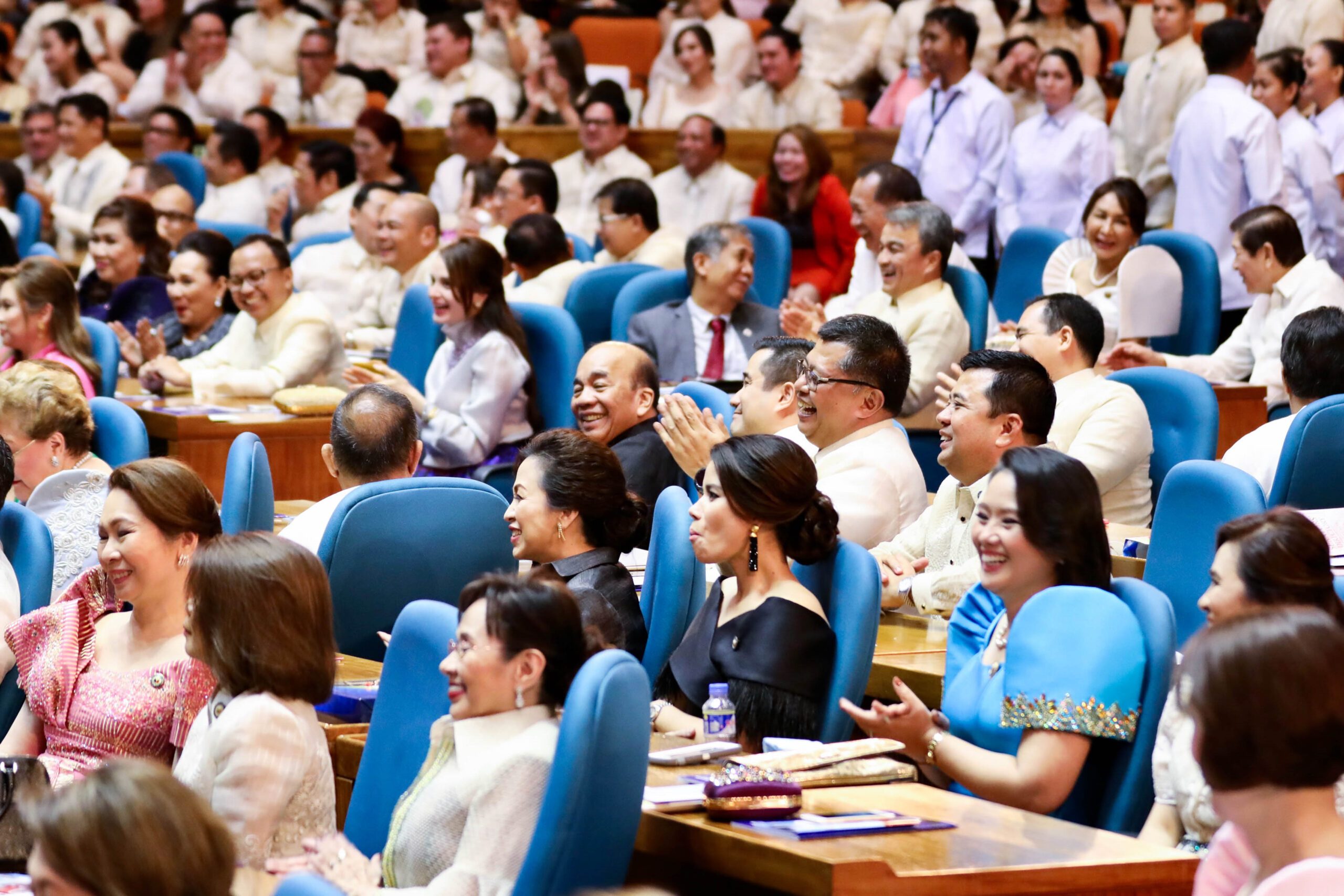SUMMARY
This is AI generated summarization, which may have errors. For context, always refer to the full article.

MANILA, Philippines – Lawmakers expressed confidence on Friday, August 4, that there was enough wiggle room and funds in the proposed 2018 national budget to fund a newly-signed law that would provide free tuition for students in 112 state universities and colleges (SUCs).
“We have already reviewed the possible financial implications and complications of this proposal and I can safely say that there is enough money to jumpstart this and sustain it in the long term,” said Davao City Representatives Karlo Nograles, chairman of the House appropriations committee, the same day the Palace announced President Rodrigo Duterte’s decision to sign the measure into law. (READ: LIST: State colleges and universities covered by free tuition law)
Duterte signed the law Thursday evening, August 3, after a meeting with legislators and his economic team. It was a surprise move considering Duterte’s economic managers had openly opposed the measure.
“The 2018 proposed national budget has enough budget space to accommodate the more important mandates of the new law… We’ll have to liposuction the fat, and transform it into funds for state colleges,” said Senate President Pro-Tempore Ralph Recto, who had pushed for free tuition measures in the previous Congress.
In a statement, Budget Secretary Benjamin Dioko said that “in the immediate term” the law will be implemented beginning academic year 2018-2019.
Diokno, who had opposed the bill, is set to lead the committee that will craft its implementing rules and regulations (IRR).
Re-allocating the budget
Diokno had earlier said the measure, which was then a bill awaiting Duterte’s signature, would cost the government around P100 billion. “Hindi po kaya ng gobyerno ‘yan (The government cannot shoulder that),” he told lawmakers.
But now that it’s been signed into law, legislators will have to find a way to fund it. The House of Representatives is currently deliberating on the proposed national budget for 2018.
Nograles pointed to the P8 billion fund allocated Higher Education Support Fund (HSEF), that financed free college education for HUCs in the 2017 budget. “If we were able to do it this semester, I don’t see any reason why we can’t institutionalize it as part of government’s social reform program,” said Nograles.
Congress also has the option of checking the budget proposals of “underperforming agencies, underspending offices, unspent funds and unutilized funds in the 2017 budget and unobligated projects as possible sources of fund amounting to at least Php 8 to Php 16 billion for 2018.”
1-Ang Edukasyon Representative Salvador Belaro has a similar proposal. “First, we would have to realign some budget items. Specifically, I am looking at the Gender and Development funds which is one of the most under-tapped items. We support access to education for all genders. There can be other items Congress can realign,” he said.
Belaro also proposed the issuance of education bonds to augment the tuition fee budget.
“If government is unable to find the budget needed to fund Universal Access to Quality Tertiary Education because cutting the budgets of other departments would just be too painful, then let us ask the entire country, the whole world even to invest in the education of our youth through the education bonds,” he said.
As it stands, the proposed combined budgets for SUCs is around P61.4 billion, noted Recto, who is proposing a “phased implementation” of the measure. The law covers not just tuition fees for all fees. Recto likewise noted that the law also covers local government-run colleges and tech-voc public schools.
Kabataan Representative Sarah Elago, meanwhile, noted that in the 2018 budget, over P9.1 billion is expected to be collected from all state schools.
Aangat Tayo Representative Neil Abayon called on the budget department to give Congress estimates of how much free college education would cost from 2018 to 2022, or the end of the Duterte administration.
Abayon also wants the department to give a detailed report on the absorptive capacity of each government agency from 2015 to 2017. – Rappler.com
Add a comment
How does this make you feel?
There are no comments yet. Add your comment to start the conversation.